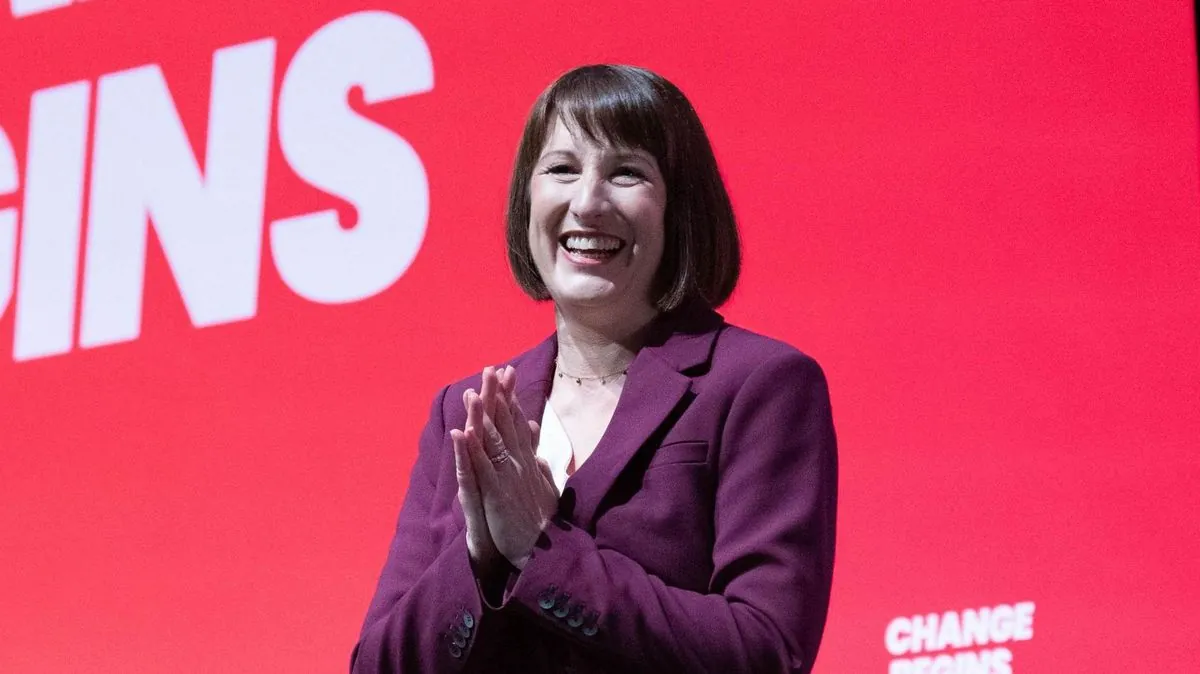On the second day of the Labour Party conference, held in Liverpool, attendees were greeted by torrential rain and an unexpectedly upbeat Rachel Reeves. The shadow Chancellor's speech marked a stark contrast to the party's recent gloomy economic messaging, which had previously compared Britain's financial state unfavorably to that of North Korea, a country notorious for its struggling economy and lack of economic freedom.
Reeves' address, chaired by her own sister, showcased Labour's evolving image. The party, founded in 1900, now appears to be cultivating a following of young, earnest professionals - a far cry from its working-class roots. These "mini-Keirs," as they've been dubbed, donned TM Lewin suits, a brand with over a century of British heritage, and eagerly anticipated long-term economic strategies.
The shadow Chancellor's speech touched upon Labour's electoral gains, listing constituencies from Banbury to Basingstoke, and Grimsby to Hartlepool. These references to diverse locations across England highlighted the party's ambition to appeal to a broad spectrum of voters in towns with varying economic and social backgrounds.
Reeves emphasized her potential role as "the first female Chancellor of the Exchequer in 800 years," a statement that received enthusiastic applause. However, this focus on representation was met with some skepticism, given that the Conservative Party has already had three female Prime Ministers, including the recent Liz Truss.
The shadow Chancellor's emphasis on her comprehensive school background and her parents' careers as primary school teachers seemed to resonate with the Labour audience. However, critics argue that such personal anecdotes, while relatable, do little to address the substantive economic challenges facing the nation.
Reeves' approach to change appeared to prioritize symbolism over concrete policy. Her reported intention to replace artwork in No. 11 Downing Street with pieces by and of women, while progressive, raised questions about the party's focus on meaningful economic reform.
The conference wasn't without incident. A protester, allegedly criticizing Labour's stance on Israel, was forcibly removed from the hall, providing a brief moment of disruption in an otherwise carefully managed event.
"What about Israel?"
The Labour leadership's handling of recent controversies, particularly regarding party donations, was notably absent from Reeves' speech. This approach contrasted with the more direct and sometimes humorous way past Labour figures, such as John Prescott, might have addressed such issues.
As the conference continued inside, the scene outside a Liverpool nightclub - a woman in a thin dress, barefoot in the rain - served as a stark reminder of the realities beyond the political bubble. This image, juxtaposed with the polished proceedings inside, highlighted the disconnect between party politics and everyday life in a city of half a million people.
The Labour Party, with its rich history intertwined with the trade union movement dating back to the 18th century, now faces the challenge of balancing its traditional values with a new, more corporate image. As it does so, the party must navigate the complex landscape of modern British politics, where representation and substance often compete for attention in the public discourse.
